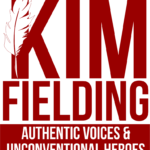I’m in the final stretch of finishing a novel cowritten with Fred Feeley. This one is a bit of a departure for me, in that it’s horror rather than romance (although the story does have some romance elements), and it’s been a blast to write.
While the genre is new to me, the cowriting experience isn’t. I’ve done it fairly often for academic journal articles and textbooks, and a few years ago, Venona Keyes and I wrote Running Blind. In the near future, Shira Anthony and I have plans for a book too.
Cowriting is a very different experience from writing alone. It has its challenges. For one thing, it’s vital that you and your partner hammer out the basics of your book. This means agreeing about processes, timelines, and goals. Will you outline extensively beforehand or wing it? How will you divvy up the writing? By chapter? By POV? By some other method? Will you use beta editors? Pay a professional editor? How fast do you expect each other to work? When the manuscript is complete, do you intend to self-publish, submit it to a publisher, or query agents?
You also need to be of more or less of the same mind concerning what the story is about. Shira and I discussed our story quite a bit in person (while traveling around France!) and we’re working off a fairly detailed outline. On the other hand, neither Fred and I nor Venona and I outlined ahead of time, but we did discuss the stories’ characters and themes, the general tone, and at least a few basics of the plot arc. That worked fine for us.
The most important challenge of cowriting is that you need to be willing to give up some control. That story isn’t just your baby anymore—now you’re co-parenting. That means you might have to step back at times and let your partner do something their way, even if you would have done something different. And it also means you need to compromise sometimes. It’s like the times when my kids were younger and I was teaching a night class. When my husband got off work, instead of cooking them dinner at home, he’d sometimes take them out for fast food. Wouldn’t have been my choice, but everyone ate and nobody was worse for wear simply because they ate a hamburger and Frosty now and then.
When cowriting, it’s also important to know your hard limits. If there are certain elements you absolutely cannot survive without or absolutely cannot live with, know what they are and communicate them to your partner early in the process. Relatedly, it’s also essential that you and your partner trust each other. Hmm. This sounds like a successful BDSM relationship too.
Which makes a good segue into pointing out that cowriting shouldn’t be painful. In fact, I find it exhilarating and joyful. My partners have brought in expertise about things I’m pretty clueless about (distance running, France, and evangelical Christianity, for example). Not only that, but discussing stories together creates synergy and, therefore, new ideas neither of you would have come up with on your own. Cowriting is also a great push to sit down and work. I might procrastinate if left on my own, but I’m much less likely to do so if my partner is waiting. Besides, I rarely want to procrastinate; I receive the manuscript containing new surprises and I find myself eager to write the next words.
Most importantly, cowriting can be tremendously fun. Authors with a WIP may be dying to talk to someone about it, but frankly, nobody else is going to be as excited about it. Unless they’re a co-author. In that case, they’re fully invested too, and they’re just as eager to play. This is a true gift in the midst of what’s otherwise quite a solitary pursuit.
One more advantage of a cowriter: you can share readers. If you’ve both published previously, you probably have at least somewhat different fanbases. Cowriting is a great way to entice your partner’s people to try your work—and vice versa, of course.
I’m really excited about my current partnerships, and I can’t wait to share the results with you!
***
 Kim Fielding is the bestselling author of numerous m/m romance novels, novellas, and short stories. Like Kim herself, her work is eclectic, spanning genres such as contemporary, fantasy, paranormal, and historical. Her stories are set in alternate worlds, in 15th century Bosnia, in modern-day Oregon. Her heroes are hipster architect werewolves, housekeepers, maimed giants, and conflicted graduate students. They’re usually flawed, they often encounter terrible obstacles, but they always find love.
Kim Fielding is the bestselling author of numerous m/m romance novels, novellas, and short stories. Like Kim herself, her work is eclectic, spanning genres such as contemporary, fantasy, paranormal, and historical. Her stories are set in alternate worlds, in 15th century Bosnia, in modern-day Oregon. Her heroes are hipster architect werewolves, housekeepers, maimed giants, and conflicted graduate students. They’re usually flawed, they often encounter terrible obstacles, but they always find love.
After having migrated back and forth across the western two-thirds of the United States, Kim calls the boring part of California home. She lives there with her family and her day job as a university professor, but escapes as often as possible via car, train, plane, or boat. This may explain why her characters often seem to be in transit as well. She dreams of traveling and writing full-time.
Follow Kim:
Website: http://www.kfieldingwrites.com/
Facebook: http://facebook.com/KFieldingWrites
Twitter: @KFieldingWrites
Email: Kim@KFieldingWrites.com
Newsletter: http://eepurl.com/bau3S9
A complete list of Kim’s books: http://www.kfieldingwrites.com/kim-fieldings-books/


From a reader/ reviewer standpoint, this was quite insightful. Thanks for taking the time to share.
I’m so happy that you found it useful! Thanks for letting me know.
Absolutely!